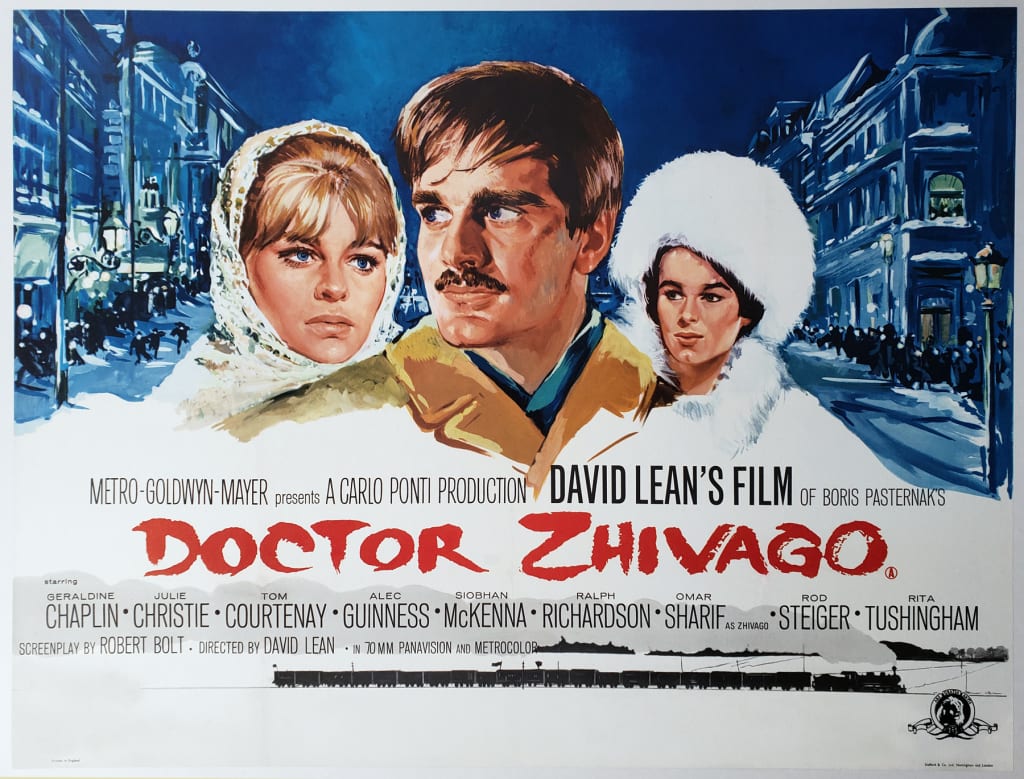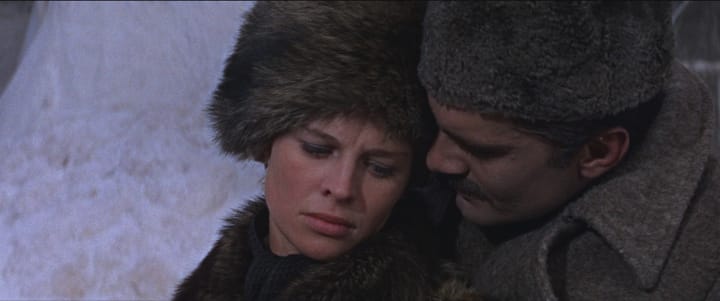A Filmmaker's Guide to: "Dr. Zhivago" (1965)
An Appreciation of Cinema (Pt.23)

In this chapter of ‘the filmmaker’s guide’ we are going to explore some of the films that have changed our outlook of the possibilities in cinema in some way, shape or form. These can include, but are not limited to: revolutionary cinematography, narratives that challenge the social structure and the common view, trademark styles of auter cinema, brilliant adaptations of novels and other works, films of philosophical value and films that touch our hearts and souls with their incredible underlying messages and morals. Within each of the films in this chapter there is a certain something that makes them special and a certain something that makes them linger long after we have watched them for the first time. Lasting impressions are difficult to create, but I think that the films we will briefly touch on in this chapter are some of the films we will never ever forget.
“Doctor Zhivago” (1965) dir. by David Lean

I have seen this film a few times and I can never get over how absolutely stunning it is. Not only through its concept, not only through its incredible source material but also through the various shots of the Russian Mountain ranges, the long shots from the trains, the shots that take us through the Revolution of 1917 in Part One and even the shots of Part Two in which Lara and Zhivago are reunited after such a turbulent meeting and occupation. The film is not only well scripted, but it has been put together with the viewer in mind. The framing device is very clearly different in place and time to the main narrative. We have the woman who has been found in this incredibly dystopian setting and then, we flashback to the turbulence, the affairs, the grandeur and the nervous breakdown of an entire country that places us back within the framing device. It is perfectly logical but not in chronological order. The entire film is placed within this time as we learn more and more about the story of Doctor Yuri Zhivago and how he becomes involved with the incredible tragic heroine that is Lara Antipova.

The performance of Omar Sharif is spectacular and cannot be faulted in the slightest. If you’ve read the book by Boris Pasternak then Omar Sharif is exactly how you would picture him, what he looks and sounds like. I think that the way in which Sharif perfected this role was because of his very Dr. Frankenstein-esque performance. He was a mixture between the rationality and reason of a doctor and the emotional response of a man who is trapped in war and love affairs. It is a brilliantly constructed character and I think that there was no other person that could portray him so well and so articulately.

My personal favourite scenes from the film are two entirely different sets of scenery. First, it is the scene in which the mother is buried and we see the funeral procession. It is incredibly sad and I don’t think I have felt so much from an on-screen funeral in my life. She is laid atop a board and adorned in beautiful clothing, looking as if she is just napping at a fancy-dress party. When she is buried, however, we get these brilliant bird’s eye view shots of the nailing down of the coffin’s top and then the burial. Finally, we get to see the body beneath the ground before we are shown the emotion above ground. It’s a beautifully tragic scene and so brilliantly filmed that I rewound it the first time I watched it, and just watched that scene again. The other scene I love is the one where Yuri and Lara are helping the soldiers at war. Especially the scene where Lara has to leave him and they say goodbye. It’s again, a brilliant constructed scene that mostly relies on expression and body language. I cannot stress enough how amazing this film is and how much it is worth the long running time it has. Every minute is just as important as the last.

That was the first time I ever saw my brother. But I knew him. And I knew I would disobey the Party. Perhaps it was the tie of blood between us, but I doubt it; we were only half-tied anyway, and brothers will betray a brother. Indeed, as a policeman I would say get hold of a man's brother and you're half-way home. Nor was it admiration for a better man than me. I did admire him; but I didn't think he was a better man. Besides, I've executed better men than me with a small pistol.
- Yevgraf, Dr. Zhivago (1965)
About the Creator
Annie Kapur
200K+ Reads on Vocal.
English Lecturer
🎓Literature & Writing (B.A)
🎓Film & Writing (M.A)
🎓Secondary English Education (PgDipEd) (QTS)
📍Birmingham, UK






Comments
There are no comments for this story
Be the first to respond and start the conversation.